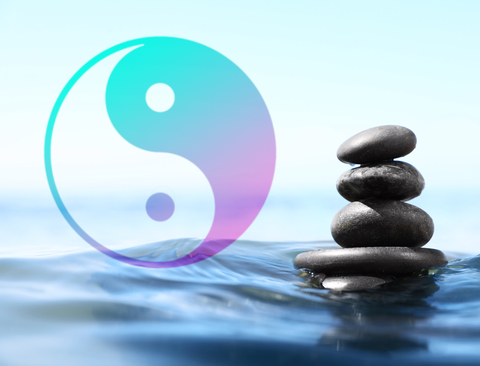How is it even possible to accept and love all parts of you when every direction you look social media illuminates the “perfect” family, “perfect” relationship, “perfect” body, “perfect” job and so on? The struggle is real people. In accepting oneself totally and completely, it’s helpful to start with dialectics. It’s about looking at yourself and life with a both-and mentality. You are not meant to be one way or another. You are meant to be just as you are right in this moment.
You may be thinking, “If I fully accept myself as I am, then I will never grow emotionally, physically, and intellectually.” There is a balance in dialectics that fosters full acceptance, or what we like to call Radical Acceptance, and change. The important thing to remember is the balance between all of your opposite parts.
Working on improving yourself AND accepting yourself exactly as you are.
As I ventured towards a new career, I was constantly comparing myself to those who have been in the field for decades, which led me to feel incompetent. This was not helpful to me or anyone I worked with so I eventually allowed myself grace, acceptance, and humility in being a novice and letting go of my inner-critic that said I was not enough. While I leaned into the not knowing everything, I also took every chance I could to learn from my coworkers and enroll in trainings to improve professionally.
Validating yourself AND recognizing your errors.
This one shows up for me mostly while having disagreements with others. As soon as I voiced my feelings, I used to disregard my perspective, believe in the other’s truth, and blame myself for mentioning anything. Now, in the solution/conclusion portion of the argument, I’m able to validate myself that it’s legit to feel what I am in the situation while also looking at and owning how I could have responded with more effective communication.
Regulating your emotions AND emotion acceptance.
I grew up learning to shove aside emotions in order to continue moving forward. This method worked momentarily, until I would have a melt-down with all the emotions I had suppressed up until that point. Through many years of practicing mindfulness, when I become highly emotional I can now recognize other vulnerabilities that have added to my emotional state, breath through the experience to help regulate, and sit with the sensations and emotions that arose.
Independence AND dependence.
Being raised by a single mother, I learned how to be an independent female at an early age. This created ruptures within relationships because my independence was perceived as not needing the other because I was determined to do it all on my own. I have learned it is okay to depend on those around me while being the independent human I am.
Work AND rest.
Fresh out of college and employed for the first time as a teacher, I would be up before school lesson planning and grading, teach all day, and continue the process well into the night. I recognized it was not effective for myself, for my students, or anyone in my life because I was burnt out. My routine now is to give 100% while I’m at work and the minute I step out of the office, I take the time to do what recharges me.
When looking through a dialectical lens in self-acceptance, it’s about leaning into the light and the dark; what you see as the good and the not so good parts of yourself. It is all of your parts combined that make you uniquely beautiful.
“When you accept yourself as you are,
You lose your pictures of success.
You gain new reserves of energy.
And you see how everything in your life
Has led directly to this moment.”
-Paul Williams: Remember Your Essence

